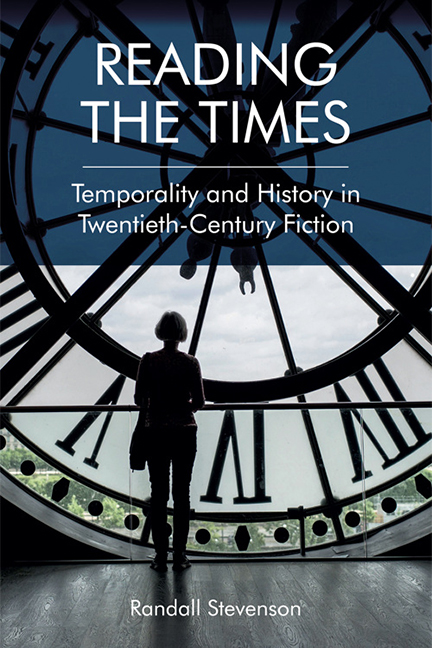Book contents
- Frontmatter
- Contents
- List of Illustrations
- Preface
- 1 Introduction: Picnic Time, Prime Time, Story Time
- 2 ‘All Those Figures’: Joseph Conrad and the Maritimes
- 3 ‘Wheels within Wheels’: D. H. Lawrence, Industrial Time and War Time
- 4 Times in the Mind: Modernism in the 1920s
- 5 Not Like Old Times: The 1930s to Mid-Century
- 6 ‘Time is Over’: Postmodern Times
- 7 Conclusion: Millennial Times, Perennial Times
- Bibliography
- Index
2 - ‘All Those Figures’: Joseph Conrad and the Maritimes
Published online by Cambridge University Press: 10 November 2020
- Frontmatter
- Contents
- List of Illustrations
- Preface
- 1 Introduction: Picnic Time, Prime Time, Story Time
- 2 ‘All Those Figures’: Joseph Conrad and the Maritimes
- 3 ‘Wheels within Wheels’: D. H. Lawrence, Industrial Time and War Time
- 4 Times in the Mind: Modernism in the 1920s
- 5 Not Like Old Times: The 1930s to Mid-Century
- 6 ‘Time is Over’: Postmodern Times
- 7 Conclusion: Millennial Times, Perennial Times
- Bibliography
- Index
Summary
Reminiscing about their profession, mariners in Joseph Conrad's Chance (1913) recall sharp disparities between the ‘glamour’ and ‘romantic associations’ promised by a career at sea and the ‘rational and practical grounds’ of the work actually involved. In Lord Jim (1900), Conrad's narrator Marlow likewise highlights difficulties awaiting anyone whom ‘cherished glamour’ has attracted towards a career in the Merchant Navy. ‘In no other kind of life is the illusion more wide of reality’, Marlow remarks, ‘the disenchantment more swift – the subjugation more complete’. Troubling the novel's central figure, first attracted to the sea by ‘a course of light holiday literature’, disenchantment of this kind may also have been experienced by the author himself. According to his friend Ford Madox Ford, Conrad ‘always declared that it was reading Peter Simple and Midshipman Easy that made him wish to go to sea’, and that he considered the author of these popular 1830s stories, Captain F. Marryat, ‘the greatest English novelist since Shakespeare’.
Conrad at any rate recalls in one of his Last Essays (1926) how sharply some of his own values – including romantic or imaginative ones required in his second career, as a novelist – conflicted with the ‘rational and practical grounds’ of his years of work in the Merchant Navy. In the intriguingly entitled memoir, ‘Outside Literature’ (1922), he reflects on how thoroughly this work depended on ‘fidelity to … the ideal of Perfect Accuracy’, vividly encapsulated in the Board of Trade's ‘Notices to Mariners’. Used to communicate crucial information to ships and sailors, these Notices offered ‘good prose’, but in a ‘language expounding the truth’, whose aims and style could hardly have been further outside literature. The Notices, Conrad emphasises,
don't belong to imaginative literature … all means of acting on man's spiritual side are forbidden to that prose … all suggestion of Love, of Adventure, of Romance, of Speculation, of all that decorates and ennobles life, except Responsibility, is barred.
Among the rational, practical grounds and responsibilities Conrad encountered at sea, the pursuit of ‘Perfect Accuracy’ in chronometry and navigational systems – based comprehensively on Greenwich's Mean Times and meridians – would inevitably have occupied a central role.
- Type
- Chapter
- Information
- Reading the TimesTemporality and History in Twentieth-Century Fiction, pp. 27 - 46Publisher: Edinburgh University PressPrint publication year: 2017



